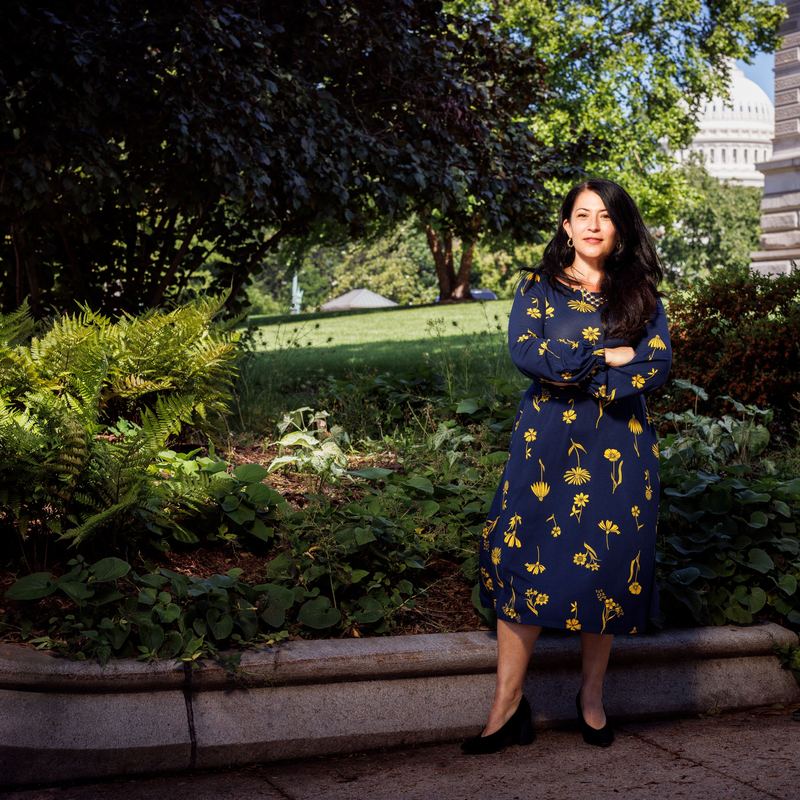David Remnick: For some of you out there, a few of you at least, summer doesn't necessarily mean the beach or the lake or the ballpark. It means the racetrack. We'll close the show today with a visit to the track guided by the poet, Ada Limón. Some years ago, Limón moved from New York City to Lexington, Kentucky, where there are fewer rats and more horses. In a book called Bright Dead Things, she writes about adjusting to her new home and the constant talk of thoroughbreds.
Ada Limón: Hey there.
Speaker 3: This is Cactus.
Ada Limón: Hi Cactus. Beautiful quarter horse.
Speaker 3: You know why I call him Cactus.
Ada Limón: Why?
Speaker 3: Well, it's his name.
Ada Limón: [laughs] Oh.
David Remnick: We met up with Ada Limón, the poet laureate of the United States a few years back at a racetrack near Lexington.
Ada Limón: We're standing in front of the main entrance here at to Keeneland, and they've got this beautiful stone walls and it kind of looks like a castle. Keeneland, I think, is one of the prettiest race courses in all of the United States. The sun's not quite up. It's a little cloudy. Being here when it's empty is lovely.
Right now, we're walking through the main track area before we get to the actual race track. This is where you have the concessions, where you get your popcorn, and your Kentucky's burgoo, which is a legendary Kentucky food. I'm not a huge fan; don't tell anyone. You get soft pretzels and popcorn, and soft ice cream for the kids.
As we keep walking up here, you'll see all of the bedding windows. I grew up going to the track occasionally with my stepfather who loves to play the ponies. We would go to the Sonoma County Fair and go to the track out there. People always ask me, "You know what? You have so many horses in your poems. What are they a metaphor for?" I think they're not really a metaphor. Out here, they're just horses.
The very first time I came to Keeneland, it was here to meet Zenyatta, who is a famous filly who I just adore. She's famous for having won the Breeders' Cup classic. The only filly to have won the Breeders' Cup classic. She was a icon of mine. It was fun to get to meet her, and that was actually the very first time I came to Keeneland.
Right now, I am looking at the main track, which is a dirt track. It has almost like a reddish quality, and it's loose dirt. Even though we got some rain there, it looks like it's bouncy. They try to keep it so it's healthy for the horses to run on. The track right behind it is the turf. Now, right now we've got a thoroughbred going by- thoroughbred racehorse. There's something about them that is so beautiful as they race, and as they just stand there in the pasture and out in here in Kentucky, they're about as common as birds.
This area right here is the apron, and this is where if you just pay general admission you can come and sit and stand on the rail and root for your horse. On a busy day, it will just be packed and loud and ruckus. It's a great sound. I kind of like coming out here when there's no one here. It feels like there is some sort of ghost of energy within the space as if you could almost hear the echoes of roars. People screaming with joy, because they actually won big for the first time.
This is a poem I wrote for the Kentucky Oaks Day, which is when all the fillies race, and it's one of my favorite races. How to Triumph Like a Girl.
I like the lady horse's best
How they make it all look easy.
Like running 40 miles per hour is as fun as taking a nap or grass
I like their lady horse swagger after winning
Ears up girls, ears up
But mainly let's be honest, I like that their ladies
As if this big dangerous animal is also a part of me
That somewhere inside the delicate skin of my body
there pumps an eight-pound female horse heart
giant with power, heavy with blood
Don't you want to believe it?
Don't you want to lift my shirt and see the huge beating genius machine that thinks,
no it knows it's going to come in first.
[music]
David Remnick: Ada Limón the US poet laureate. How to Triumph Like a Girl, and you can find more of her work @newyorker.com.
[music]
Copyright © 2024 New York Public Radio. All rights reserved. Visit our website terms of use at www.wnyc.org for further information.
New York Public Radio transcripts are created on a rush deadline, often by contractors. This text may not be in its final form and may be updated or revised in the future. Accuracy and availability may vary. The authoritative record of New York Public Radio’s programming is the audio record.
